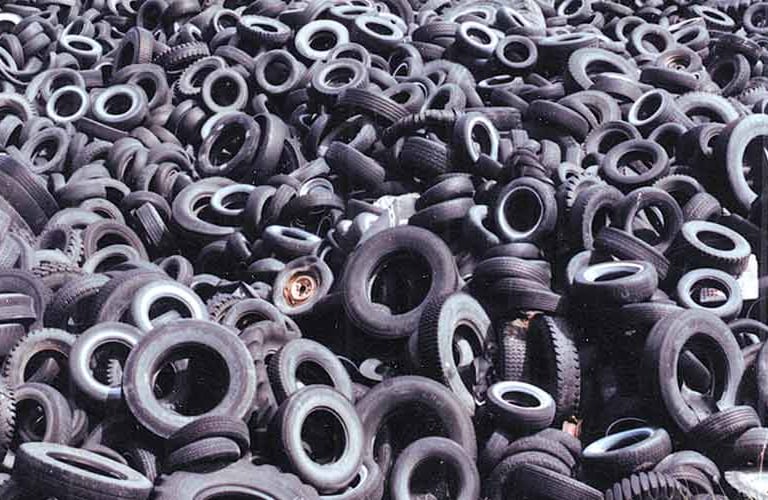The Business That Won't Die
By: Muhammad Mustafa Arif
Source: The News International


During a visit to a major smuggled tyre market in Lahore, it was evident that, despite recent customs raids, illegal trade continued unabated and even thrived.
Vendors openly discussed tactics like concealing multiple tyres within one to evade detection. The scene raised critical questions about product safety, the impact on Pakistan’s formal economy, and why this shadow economy continues to flourish despite enforcement efforts.
Rooted in post-independence challenges like weak industrialisation and limited financial access, informal trade remains a persistent and incentivised alternative to the formal economy. In recent years, Pakistan's informal economy has grown due to high inflation, unaffordable local alternatives, corruption and heavy taxation.
Smuggled goods frequently enter Pakistan often under the guise of Afghan Transit Trade (ATT) consignments. Even though nearly 90 per cent of the border is reportedly fenced, these illicit goods still find their way into the country. The underlying reason is the widespread practice of bribery at customs and security checkpoints, which facilitates unauthorised clearance. While such unethical practices may be of advantage to certain individuals, they are tremendously costly to the country as a whole. In the case of certain goods, like second-hand or lower-grade tyres, such smuggled items may endanger the health and safety of consumers as well as the general population.
Recent estimates place the loss to the economy of Pakistan at a staggering Rs3.4 trillion a year, that is, nearly 3.5 per cent of the GDP of the country, through illegal smuggling activities. The figure speaks volumes about the deep-seated structural issues that plague the country's economy. The impacts go far beyond financial loss; they erode the credibility of the formal business sector, lower the revenue of the government and also have severe implications for consumer welfare, most significantly unregulated or sub-standard products.
Illicitly imported products, which are often available at significantly lower prices than their domestically manufactured and legally imported versions, disrupt the market's equilibrium. In the backdrop of increasing commodity prices, the majority of Pakistani consumers resort to these cheaper options. Consumer preference is typically based on the belief that, since such products carry well-known international brand names, their quality would be acceptable, if not superior. Such beliefs are rarely questioned and the lack of control by the regulatory mechanism enables the safety and efficacy of such products to remain untested.
The prevalence of smuggling also has a corrosive effect on entrepreneurial activity and industrial development. Local manufacturers and potential entrants into industries are often discouraged from investing due to their inability to compete with the artificially low prices of smuggled products. Businesses that produce high-quality products are at a disadvantage, as higher prices and adherence to regulatory standards result in their products being less competitively priced than smuggled products. This reduces the incentive for innovation as well as destroys business confidence and thus slows down the growth of local industries.
In the long term, the informal economy weakens the formal economy by depressing government revenues through taxation, thereby limiting the government's ability to invest in core sectors such as industry, education, and infrastructure, which are vital to economic growth based on sustainability. It also represses domestic production, widens trade imbalances and promotes dependence on imports, thereby leading to a widened current account deficit and increased foreign aid dependence.
Smuggled goods, such as tyres, pose serious risks to consumers. Generally, these tyres are outdated or beyond their useful life, and are misrepresented through falsified manufacturing dates to deceive consumers. This is a violation of consumer rights and an attack on public safety because older tyres have a greater likelihood of malfunction, especially at high speeds or under adverse conditions. Consumers unknowingly end up buying inferior products, mistakenly believing them to be reliable and safe.
The chronic issue of smuggling presents a key dilemma: what can Pakistan do in order to reduce the impact associated with its black economy effectively? Although the total elimination seems unrealistic, strategic formalisation of some illegal trade routes could be a viable option. Legalising and regulating some of the goods, while ensuring they meet national and international safety and quality standards, could help protect consumers and bring untaxed transactions into the formal economy.
Equally important is the need to shift policy priorities. Redirection of public spending on targeted subsidies, industrial development and capacity building can drive local production, generate employment and increase export competitiveness; these are essential to bring long-term economic stability and are an important step to encourage people to switch over to locally manufactured products from smuggled ones.
The Track and Trace System needs to enhance its technology function, undertake regular audits, and increase the size of the penalty for non-compliance to restore its deterrent capability. Additionally, the absence of inter-agency coordination has undermined the state's ability to respond effectively. TRACIT suggests that the creation of specialised inter-agency platforms and channels of intelligence sharing is essential in disrupting clandestine supply chains and increasing institutional oversight.
Tariff rationalisation can also lower the cost of legal imports and thereby cut down on the market for their illegal counterparts. From an enforcement perspective, the Inland Revenue Enforcement Network requires expansion, market visits should be doubled and additional resources allocated to the FBR to reduce illegal trade at the retail and distribution levels.
In sum, tackling Pakistan’s thriving smuggling economy requires more than reactive crackdowns; it demands structural reform. From reducing import tariffs and strengthening enforcement to supporting local industries and restoring consumer trust, a multi-pronged, sustained strategy is essential. Only through coordinated policy, institutional integrity and long-term investment can Pakistan hope to shift from a shadow economy towards sustainable, formal economic growth.
Arif n Arif
Advocates and Solicitors
Contact
Support
info@arifnarif.com
042 37352016
© 2024. All rights reserved.
